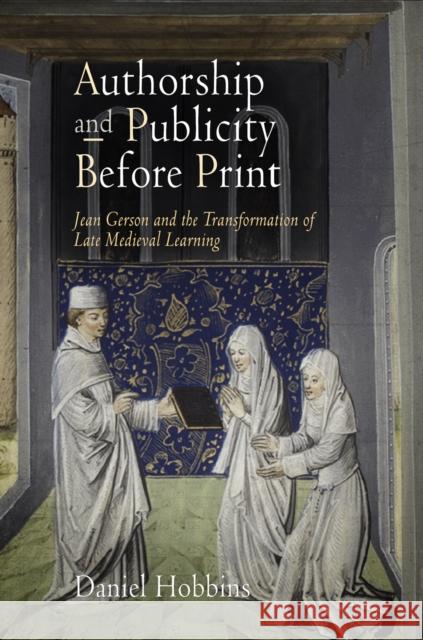Authorship and Publicity Before Print: Jean Gerson and the Transformation of Late Medieval Learning » książka
Authorship and Publicity Before Print: Jean Gerson and the Transformation of Late Medieval Learning
ISBN-13: 9780812222746 / Angielski / Miękka / 2013 / 352 str.
Widely recognized by contemporaries as the most powerful theologian of his generation, Jean Gerson (1363-1429) dominated the stage of western Europe during a time of plague, fratricidal war, and religious schism. Yet modern scholarship has struggled to define Gerson's place in history, even as it searches for a compelling narrative to tell the story of his era.
Daniel Hobbins argues for a new understanding of Gerson as a man of letters actively managing the publication of his works in a period of rapid expansion in written culture. More broadly, Hobbins casts Gerson as a mirror of the complex cultural and intellectual shifts of the fourteenth and fifteenth centuries. In contrast to earlier theologians, Gerson took a more humanist approach to reading and to authorship. He distributed his works, both Latin and French, to a more diverse medieval public. And he succeeded in reaching a truly international audience of readers within his lifetime. Through such efforts, Gerson effectively embodies the aspirations of a generation of writers and intellectuals. Removed from the narrow confines of late scholastic theology and placed into a broad interdisciplinary context, his writings open a window onto the fascinating landscape of fifteenth-century Europe.
The picture of late medieval culture that emerges from this study offers neither a specter of decaying scholasticism nor a triumphalist narrative of budding humanism and reform. Instead, Hobbins describes a period of creative and dynamic growth, when new attitudes toward writing and debate demanded and eventually produced new technologies of the written word.











